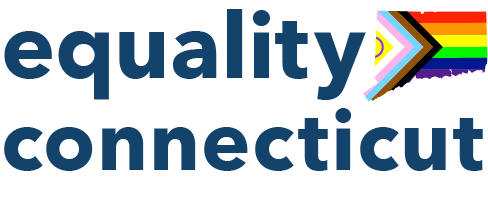POLICY & MOVEMENT CENTER
Equality Connecticut is dedicated to advancing LGBTQIA+ rights and expanding opportunity through effective state-level policy and advocacy. Working in close partnership with lawmakers, community leaders, and grassroots organizers, EqCT advances inclusive legislation that protects and uplifts LGBTQ+ people across Connecticut. From defending nondiscrimination protections and safeguarding access to affirming healthcare to supporting the safety and well-being of trans youth in schools, Equality Connecticut remains committed to ensuring that everyone can thrive. Through strategic policy leadership and community-driven action, we are helping build a more just, equitable, and inclusive future for all.
2026 LEGISLATIVE PRIORITIES
Check back on February 1st for information about state-level policies Equality Connecticut pursuing this year.
